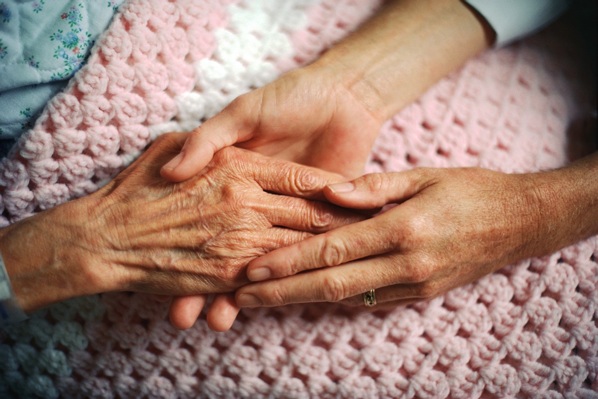Or so at least we’ve been told. It turns out that the lamest sense is actually a lot more powerful than you might imagine. There’s an unbelievable array of subtle, subconscious things that we just wouldn’t be able to pick up without a functioning nose. You’re probably familiar with the idea that old people stink. Whether it’s from first-hand experience, or just general pop-culture osmosis, somewhere along the line most of us begin to accept the concept of an “old person smell” as a fact of life. And in a weird way, we’re not wrong. In a study which rather sadistically placed pads under people’s armpits and then gave them to others to sniff, scientists found that the sniffers could reliably distinguish the odors of people over seventy-five from the odors of other people. Interestingly, the odor isn’t necessarily bad. Scientists believe that the negative stigma around the “old person smell” concept has more to do with a fear of old age than an actual negative response to someone’s body-stink. Since it’s the world’s most popular psychoactive drug, it’s fairly safe to assume that most of us enjoy a cup of joe every now and again. But according to one study, you may not actually have to drink it to get the necessary effects. By studying the effects of coffee aroma on rats, scientists found that coffee’s smell makes the brain release proteins that will protect nerve cells from stress. Which is exactly what coffee does to you when you drink it.
Though it sounds like a movie tagline, the ability to smell fear is something humans really did develop for defensive purposes. Not only can we learn to identify what fear smells like in other people, but we will naturally become afraid ourselves after smelling it. The evolutionary idea behind this ability is that humans, like all social animals, are strongest when acting as a group. If one person is so stunned by panic that he can’t communicate his emotions, the stink of his terror (as well as his body language) will spread fear to the others in his or her group. This keeps everyone’s actions—or at least their emotions—coordinated. These days we don’t have so many encounters with predators. But we do have horror movies in theaters, and the principle still works in essentially the same way. Men might hope that they’re being subtle in their advances, but scientific studies have revealed that there’s simply no hiding their arousal from a woman. She can smell how turned on a man is—and not just in a subconscious way. In studies, sniffing pads soaked with the sweat of horny men was found to activate parts of a woman’s brain normally associated with perceiving emotions in others. But what about men? Do their noses play any role in their eternal efforts to get some? Certainly—but not in the same way. While women have a definite advantage when it comes to perceiving the intentions of their potential sexual partners, men have a slightly different ability: While a man’s ability to pick up on a woman’s sexual excitement might be entirely subconscious, his ability to tell when a woman is ready to get pregnant isn’t. In a blind study, scientists discovered that heterosexual men sniffing the T-shirts of various women would consistently label those of ovulating or fertile women as more “pleasant” or “sexy” than the T-shirts of other women who weren’t ready to conceive. Apparently, men can identify this scent up to a week after the clothes were worn.
When you examine the findings from various studies about individuals’ sexual preference towards different body odors, an interesting pattern occurs: sexuality is actually detectable by odor. If a straight man is given the T-shirts of a combination of gay and straight men and women, he will consistently find the odor of the straight women more pleasant than the odor of any other group. The same is true for gay men: they will be more attracted to the scent of other gay men, and so on for every other group. Though the findings are hardly conclusive, this does provide strong scientific support for the idea that homosexuality is based in neurobiology, rather than being an individual’s choice. We have the ability of a bloodhound, and we didn’t even know it. It turns out that every human is born with the ability of “egocentric localization.” That’s the ability to tell where a smell is coming from without even moving one’s head—in exactly the same way that people can pinpoint the origin of a sound. It’s a skill that all of us possess, but which most of us never bother to hone. So far all these nasal tricks have been neat and perhaps unexpected, but not especially useful. So here’s one that’ll actually improve your day: you can use your nose to get better grades. You probably know that smells can trigger a flood of old memories—but what you may not know is that without a sense of smell, you may have not been able to recall that memory at all. It turns out that olfactory (smell) perception is far more closely linked to memory than you realize: it stimulates both the ability to recall things and the ability to commit those things to memory. So next time you study while rubbing yourself down with lavender oil, be sure to take some lavender oil to the test. Most of us have heard that facial symmetry is one of the most important factors in a person’s level of attraction. But studies show that symmetry isn’t just something we see—it’s something we also smell. In a study that (once again) involved smelling other people’s dirty T-shirts, scientists found that women will rate the smell of symmetrical men as more attractive than that of non-symmetrical men—even when they’ve never smelled, seen, or even met the men in question before. Basically, sexy people smell sexy—and so do their clothes. Humans consistently make their choice of sexual partner based on whether or not the other person’s Major Histocompatibility Complex is different from their own. The Major Histocompatibility Complex, or MHC, are the molecules in the body that fight foreign invaders, like germs and viruses. Choosing a mate with a different MHC than your own will improve your offspring’s MHC, meaning that they’ll have a stronger immune system and will be more resistant to disease. Women are most likely to be attracted to men who have a different MHC—and interestingly, it seems that the sense of smell is pretty much the only way to determine the compatibility. The best piece of advice for young people looking to find a serious partner? Follow your nose. J. F. Sargent is a workshop moderator and frequent contributor at Cracked.com
























